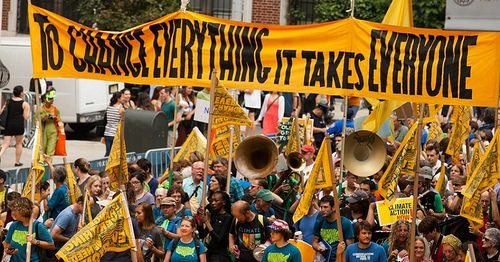
September 21, 2014; MPR News
In New York City yesterday, more than 300,000 protestors turned out for a march demanding UN action on climate change—the largest ever on the issue. Among those marching were many luminaries, including UN Secretary-General Ban Ki-moon, who is brokering this week’s UN meeting aimed at building support for a new global climate treaty. A previous attempt to develop such a treaty in 2009 in Copenhagen ended in disappointment when leaders did not achieve a binding treaty. Now, public pressure is increasing and the issue has gained in urgency, but many say that time is running out. Will global leaders be able to strike a big compact?
The New York City event, timed to immediately precede the UN Climate Summit, was only one of what organizers said were 2,800 events planned around the globe. A Twitter feed at the march’s website documented events in Perth, Melbourne, London, Dublin, Johannesburg, and Tanzania.
In Jakarta…
a sea of people at the #peoplesclimate march in jakarta pic.twitter.com/wseOAq5Ceq
— 350 East Asia (@350EastAsia) September 21, 2014
…and Adelaide.
Sign up for our free newsletters
Subscribe to NPQ's newsletters to have our top stories delivered directly to your inbox.
By signing up, you agree to our privacy policy and terms of use, and to receive messages from NPQ and our partners.
Message to @TonyabbottMP from Adelaide ACTION ON CLIMATE CHANGE NOW! pic.twitter.com/7bqMfn1yGK#auspol#PeoplesClimatepic.twitter.com/rvqNam6iES
— 350Australia (@350Australia) September 20, 2014
We here at NPQ are big fans of creative protest art and so we bring you a small selection of the placards seen at the marches:
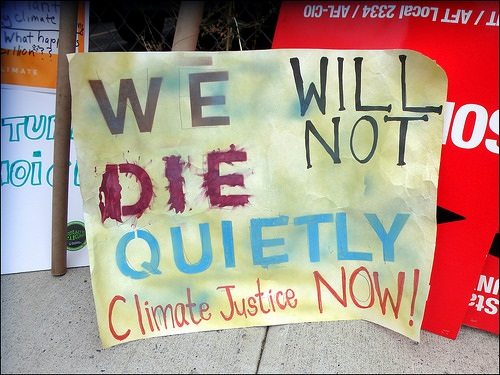
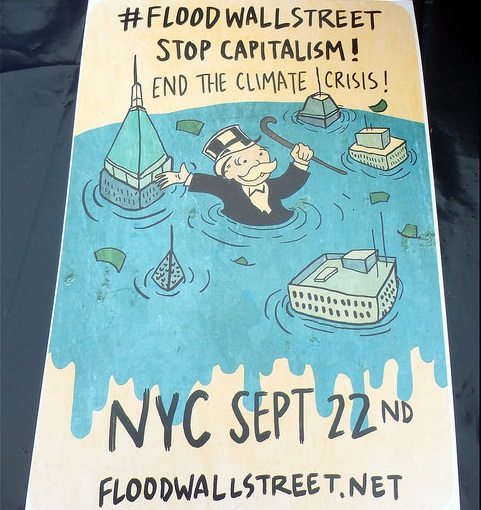
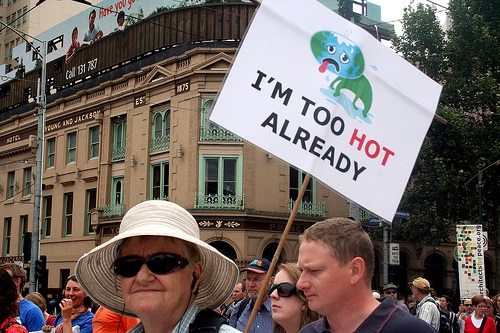
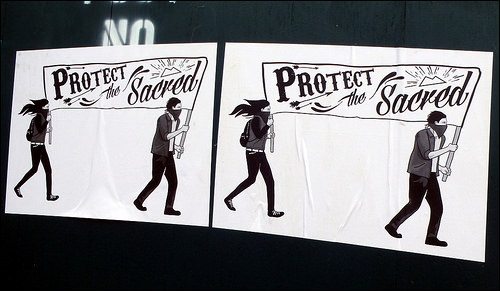
The size of the turnouts may be due to the number of people affected across the globe and the fact that the bridge that’s burning grows ever hotter. Former Vice President Gore is quoted here as saying that time is running out, and the World Meteorological Organization recently reported, “Concentrations of carbon dioxide increased more in 2012 and 2013 than in any year since 1984.” Another study reported that the West Antarctic ice sheet was starting to collapse.
“We’re in a car heading toward a cliff, and while we’re talking about how important it is that we put on the brakes, the car is meanwhile accelerating,” said University of California Irvine scientist Steve Davis.—Ruth McCambridge












